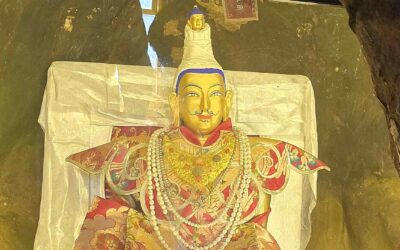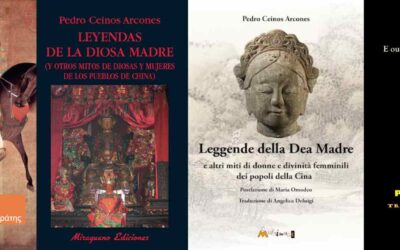Shadow – A Film by Zhang Yimou
Zhang Yimou leads one of the most consistent and brilliant careers in the cinematography of China, and with The Shadow (Ying) he delights the viewer again with a beautiful and surprising story, based on a very original script, and that provides some of the most beautiful scenes of the seventh art, all in a landscape that seems to rediscover again a country always full of contrasts.
Already the beginning fills us with expectations by stating that in ancient times, many nobles to avoid the risk of being killed at court, had some doubles called «shadows», who replaced them in delicate situations. And that these «shadows» had been the anonymous heroes of certain historical circumstances. That written statement with which the film begins is already a bridge that fills us with doubts and leads us to a fantasy world where everything can be real, where doubt is the only safe companion during the two hours of our journey.
After a few scenes at the court, we suddenly find that the character with whom we begin to grow fond of is in fact nothing more than the shadow of the general, a warrior who the general’s uncle adopted as a child to prevent him from suffering the fate of his father, beheaded at court in front of all the ministers. But instead of being the shadow, the general is the lackluster character, who throughout the play appears disheveled, weakened, sowing a doubt in the viewer as to whether his life will end by natural means at any moment, or whether the Machiavellian plans with which he hopes to defeat the enemy general will eventually catapult him to power.
The action is set in the Kingdom of Pei, a fictitious name with vague historical resonances, ruled by a young king who has made peace his guiding principle. A peace that many of his advisors find humiliating, as it includes allowing the Yang family to have occupied the almost impregnable stronghold of Jing.
The general, who has already been wounded by Yang, has challenged him again to settle Jing’s future in a personal duel, other ministers are in favor of peace. In the midst of a continuous rain, the «shadow» must fight on behalf of his general in the duel with General Yang while a group of patriots launches a surprise attack on the fortress.
If the whole film, set in a succession of scenes in which the decorations, costumes and everything on the scene is white, black or of a myriad of grays, has a high dreamlike tinge, the duel on an elevated platform from a strange ship and the attack on the fortress seem literally taken from the world of dreams and fantasy. The originality of each of the shots, of the approaches, of the resources, keeps the viewer’s attention, and also takes him to that particular world that is each work of art.
The battle is brief, with surprising results. During the battle, blood appears as a sudden break in the black and white reality. The blood is the reality, the result of the plans and the games ends up materializing in the confrontation. There, lives are put at stake, and blood flows.
The last scenes unfold from surprise to surprise. Yes, it is the least that the spectator deserves at this point in the history of cinema, that the screenwriter fulfills his role and seduces us, and surprises us and makes us leave the theater convinced that the film was worth watching.
With Zhang Yimou it is always worth it. The film is overwhelmingly beautiful from the first to the last scene, but at the same time it is a continuous succession of artistic challenges that the director sets himself, which he shares with the viewer. I am fascinated by the sincerity of the director, who continues to take risks, putting himself in our hands, offering to our appreciation, with the same innocence he used 30 years ago, a new way of seeing life, a different way of making films.
Casting: Deng Chao, Sun Li, Zheng Kai, Wang Qianyuan, Wang Jingchun, Hu Jun, Guan Xiaotong, Leo Wu
Screenplay: Li Wei, Zhang Yimou, based on a story by Zhu Sujin.
Year. 2018.
116 min.
Last posts
Drak Yerpa: The Tibetan Cliffs of Meditation
Drak Yerpa: The Tibetan Cliffs of Meditation A visit to the cliffs of Drak Yerpa, about 30 kilometers from Lhasa, not only offers a glimpse of the beauty of the Tibetan landscape and some rural settlements near the capital, but also gives us the chance to explore one...
Great Taoist magician Liu Zheng
Great Taoist magician Liu Zheng Liu Zheng was a native of Pei[1]. Endowed with extraordinary talent and vast learning, he left no branch of knowledge unexplored. Profoundly reflecting on the human condition, he concluded that worldly honors and riches endure but a...
Legends of the Mother Goddess
Legends of the Mother Goddess I am pleased to share with all you that the Italian translation of my book Legends of the Mother Goddess (and Other Myths of Goddesses and Women from the Peoples of China) has now been published and is available for purchase. As many of...







